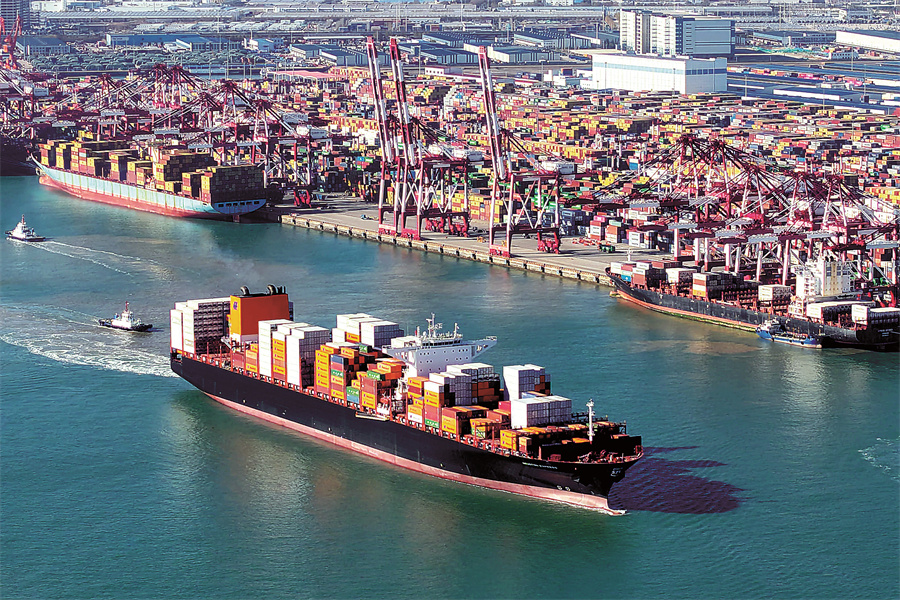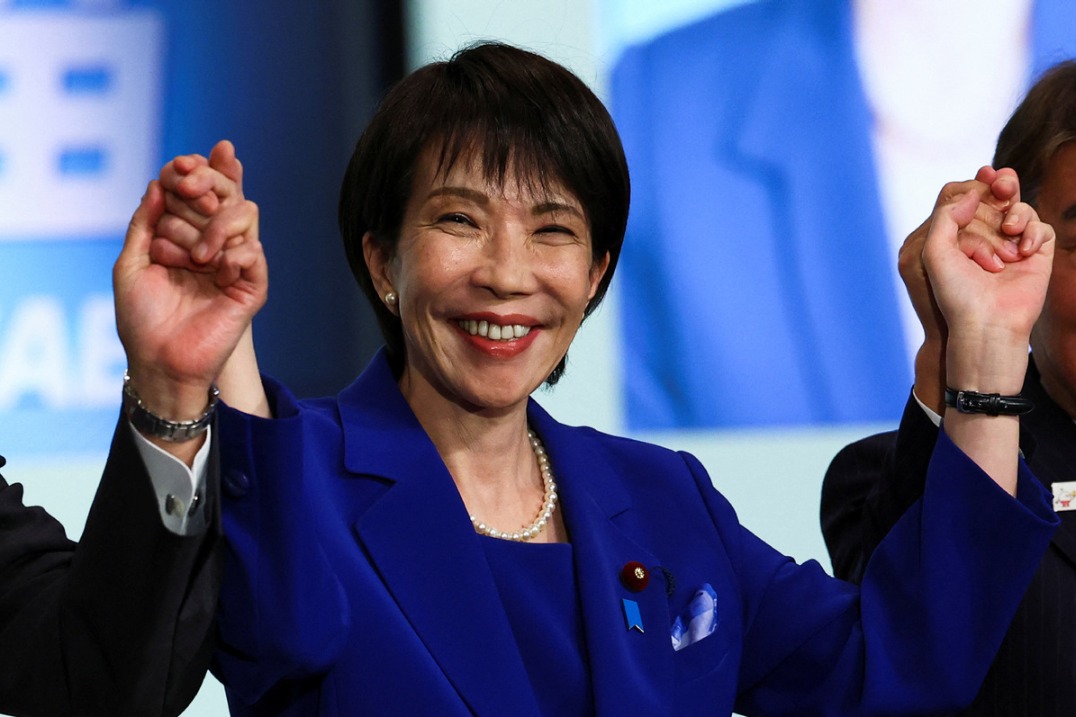Openness, win-win features of Chinese economy


President Xi Jinping has emphasized that China will not change its resolve to expand high-level opening-up, its determination to share development opportunities with the rest of the world, and its commitment to an economic globalization that is more open, inclusive, balanced and beneficial for all. Guided by Xi's economic thought, China's economy continues to forge ahead with distinctive features of openness and win-win outcomes.
First, China is committed to steering economic globalization in the right direction and fostering sustained global economic growth. Having benefited from globalization, China has also been a contributor to, defender of, and driving force behind it. Since its reform and opening-up, China's economy has deeply integrated with the world economy, consistently contributing around 30 percent to global economic growth. The country also played a crucial role in stabilizing the world economy during the Asian financial crisis of the late 1990s and the global financial crisis of 2008.
At present, globalization is facing headwinds as imbalances between growth and distribution and capital-labor disparities within some countries intensify, alongside the rise of unilateralism and protectionism. As President Xi said, the only way out is to practice true multilateralism, and economic globalization is an irresistible trend of history. As a result, China consistently upholds and practices true multilateralism, firmly safeguards the multilateral trading system with the World Trade Organization at its core, promotes the reform and improvement of global economic governance, and contributes its wisdom to steering globalization in the right direction.
Besides, China is firmly committed to safeguarding the resilience and stability of global industry and supply chains, promoting smooth circulation of the world economy. President Xi has emphasized that maintaining the resilience and stability of global industry and supply chains is a vital guarantee for promoting the development of the world economy and serves the common interests of people globally.
China is the only country comprising all the industrial categories listed in the United Nations classification. During the COVID-19 pandemic, as the world's leading manufacturer, China played a crucial role in maintaining the stability of global industry and supply chains, and contributing significantly to the global fight against the pandemic and the recovery of the world economy.
Additionally, through its industrial restructuring and upgrading, China has established the world's largest and most comprehensive new energy industry and supply chains. Over the past decade, China has contributed to a cumulative reduction of over 60 percent and 80 percent in the global average levelized cost of energy for wind and solar power, respectively.
Third, it is advancing high-quality Belt and Road cooperation, offering public goods and a platform for international cooperation. Since 2013, the Belt and Road Initiative has become the world's most extensive platform for international cooperation. Solid progress has been made in "hard connectivity" of infrastructure, with the completion of projects such as the China-Laos Railway. The framework of "six corridors, six routes, and multiple countries and ports" has taken shape. The China-Europe Railway Express has completed over 110,000 trips, which, according to German media, has reinvigorated Duisburg — a city in Germany facing receding growth momentum.
For "soft connectivity", China has signed Belt and Road cooperation deals with more than 150 countries and over 30 international organizations, and has sealed 23 free trade agreements with 30 countries and regions. In terms of "heart connectivity", people-to-people bond as well as people's well-being has also been continuously strengthened, with numerous "small yet impactful" livelihood programs taking root in sectors such as agriculture, education, healthcare, poverty reduction, water resources, and disaster prevention and mitigation.
Furthermore, the country is steadfastly opening wider at a high standard, creating development opportunities for all countries. In a meeting with international business leaders in late March, Xi stated that partnering with China will bring more opportunities; believing in China is believing in tomorrow, and investing in China is investing in the future. With its market boasting nearly 50 trillion yuan ($7 trillion) in annual consumption and over 20 trillion yuan in imports, China offers significant development opportunities. It has proactively expanded imports, extending zero-tariff options to all least-developed countries with which it has diplomatic relations. Notably, the first seven editions of the China International Import Expo have generated a total intended transaction amount exceeding $500 billion.
China is actively aligning with high-standard international economic and trade rules, continuously improving its business environment, and steadily advancing institutional opening-up. It has completely lifted foreign investment access restrictions in the manufacturing sector and is advancing pilot programs to open up service sectors such as telecommunications, healthcare, and education.
As a survey by the US-China Business Council shows, an overwhelming majority of its member companies consider the Chinese market as indispensable to their global competitiveness. China's development presents tremendous opportunities to the world, not "shocks". These features of openness and win-win outcomes demonstrate that China is consistently sharing development opportunities with the world and playing a positive role in the global economy.
The article is an abridged translation of an article appearing in People's Daily.
The views don't necessarily represent those of China Daily.
If you have a specific expertise, or would like to share your thought about our stories, then send us your writings at opinion@chinadaily.com.cn, and comment@chinadaily.com.cn.


































